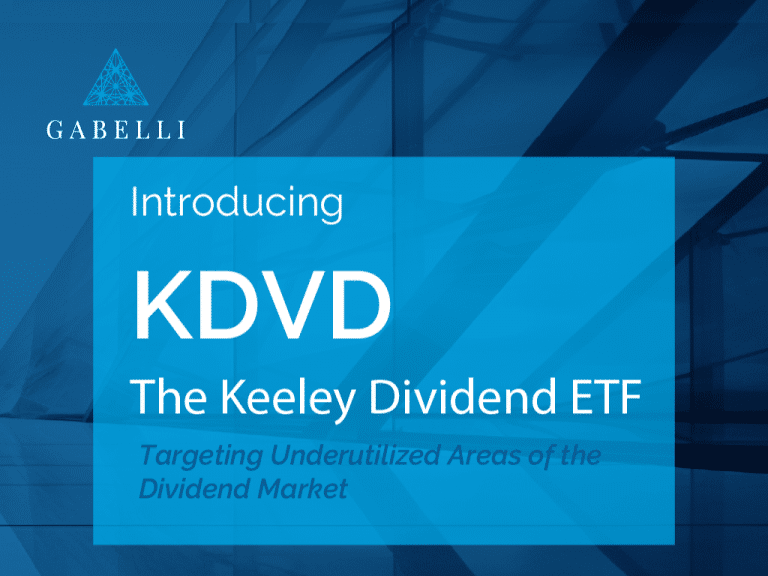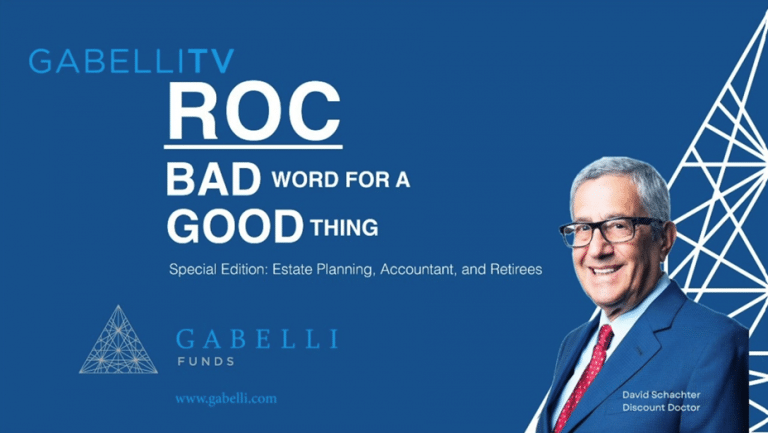Nvidia (NASDAQ: NVDA) has captured the headlines around the next technology wave that could, according to PwC, generate multi-trillions for the global economy by 2030. (Source: PwC “Sizing the Prize,” 2017) The firm’s leadership in advanced semi-conductors and innovation in compute has created a frenzied investor interest and a corporate capital expenditure arms race. As this great sweep of new infrastructure occurs and economic growth unfolds, we believe investors should focus on other areas of the market to take advantage of these incredible trends. Specifically, select financial services companies are well positioned to benefit through product innovation, increases in worker productivity, enhanced risk management and efficiency of installed tech and client support facilities among others. We would note the significant uncertainty around the ultimate timing of realizing some of these benefits. There will be risks to implementation execution and investment spend that may not produce appropriate returns. Lastly, company specific feedback so far has really been very high level and conceptual vs. providing a more concrete roadmap for material earnings impacts. Still, there are a few companies recently that have started to define the early benefits to their organizations.

“And artificial intelligence, I think it will be very transformational. The benefits we were seeing last year were between $1 billion and $1.5 billion. I think that this year it’s heading towards $2 billion.”-Daniel Pinto, President, JP Morgan, September 2024 (JP Morgan 2024E Consensus Net Income = $53.2 billion, Source: Thomson ONE)
Financial Services Companies Characteristics to Benefit from AI/Technology Wave
- Large customer bases and focus on client engagement
- Significant data aggregation
- Fixed, installed technology platforms
- Investment funds focused on infrastructure
- Wealth management segments
Additionally, we believe early, successful adopters will likely benefit disproportionately against industry competitors due to a virtuous positive cycle of data accumulation and analysis, more informed client engagement and successful products, leading to more sales. This understanding is critical to our belief that this cycle is likely to produce a wider gap between industry’s winners and losers. We also believe history has already been a guide for seeing who those potential winners will be.
“Our investments help fuel a virtuous cycle of growth (revenue grew by 40%+ from $42 billion at the end of 2021 to $61 billion in 2023), enabling us to attract and retain large numbers of high spending, highly engaged premium customers. Our premium customer base, along with the investments we have been making in our marketing analytics and platforms, attract a growing network of merchants and partners, who add more value to our Membership offerings, which in turn enables us to attract even more premium customers.” -Steve Squeri, CEO, American Express, 2023 Chairman’s Letter
Major Financial Services Companies have Already been Winning with Automation and Technology Innovation – AI can Accelerate those Efforts
Expense Management
Bank of America (NYSE: BAC) launched “Erica,” the firm’s virtual bank assistant based on Artificial Intelligence in 2018. In 2023, the service had 1.9 billion interactions with 40 million clients. It took four years to get to 1 billion interactions and just over a year to get to a second billion. More broadly, the gains from the efficiency of Erica using AI are anecdotal of the firm’s productivity in improving operating expenses. In 2023, bank expenses were $65.8 billion vs. $69.2 billion in 2013. That is also against a significantly larger client, asset base ($1.9 trillion vs. $1.1 trillion of deposits in 2013 and associated higher amount of transactions). BAC management has historically demonstrated the firm can do more with less – the evolution of AI applications will enable this progress to accelerate.

Credit Metrics

American Express (NYSE: AXP) has a differentiated closed-loop network model, but also a history of leveraging technology especially with credit risk. It is worth noting that since 4Q19, the firm is the only one in its competitive class to have charge-offs (bad customer debt) trending below pre-pandemic levels. Although there have been changes to dynamics in the industry with respect to client balance sheets and monthly payment trends, we still believe a contributing factor to the outperformance is the firm’s technology investment and data science to leverage proprietary data and real time underwriting to improve risk, ultimately leading to the better margins.

Fraud
Payments fraud protection is a major issue for financial services firms. Visa (NYSE: V) has invested over $10 billion in AI and fraud prevention technology over the last five years to increase network security. “Digital payments go far beyond completing a sale – we are entering an era of modern commerce where winners move fast, AI is essential, experiences are flexible, and security is native.” (Source: Antony Cahill, Global Head of Value-Added Services) In 2023, Visa was able to block $40 billion in fraudulent activity, almost a 100% increase from 2022. (Source: Visa Press Release, March 2024)
Firms Well Positioned to Monetize Existing Data Sets to Drive Innovation and Customer Productivity
FactSet Research Systems Inc. (NYSE: FDS), Moody’s Corp. (NYSE: MCO) and S&P Global Inc. (NYSE: SPGI), and are major providers of financial data for a diverse client base of investment managers, government and corporate entities and individuals. Over the years, these firms have built impressive platforms for accessing and analyzing these data sets. Artificial intelligence and greater compute can help enhance the value of those data pools. Internally, the data and marketing groups can discover new use cases and unlock value (new market insights) for customers.

Second, the firms are cultivating the data and with the help of AI tools providing more productive access for clients. Generative AI can help with many potential “alpha” enhancing investment strategies including “identifying main themes and sentiment in documents, or summarizing lengthy documents like regulatory filings or earnings call transcripts.” (Source: FactSet) On a more fundamental basis, we believe the AI wave will be very accretive to these institutions over time for a number of reasons. The value of the data will increase due to further monetization potential and expanded opportunity. The nature of the AI dynamics around scaling will produce attractive incremental margins for these firms.
Insurance Industry to Benefit in Many Ways
- Faster speed of execution – simple policies like auto to increase throughput, lower client friction.
- Automating data process – enables underwriters more time to evaluate policy applications for return hurdles.
- More efficient claims processing – workers compensation reduction in legal involvement and loss-time claims.
- Fraud detection – ability to pull out issues from submitted imagery.
Insurance companies continue to strive to be better at underwriting, improving time to policy commitments and overall reacting to changes in risk dynamics related to climate change, social inflation, fraud and regulations among others. Data collection and processing requires an intensive process of coordination and oversight from agents to corporate managers. The impacts of underwriting mistakes are often not felt for many years due to miscalculations. The good news is that data availability through digitization is helping, while investments in selling and corporate platforms has improved for re-quoting and accuracy of policy information. With those efforts already in motion, insurance companies can accelerate this progress with the emerging advancements in tech today.
In February 2024, Chubb Limited (NYSE: CB) announced a collaboration with Cytora, a new company focused on generative AI for insurance workflows. The partnership was set up to enable automated document processing by digitizing documents, helping eliminate or reduce manual intervention. This operational alignment complements Chubb’s use of AI, which management has been employing for “quite 4 Source: Markel Group a number of years now, five or six years anyway. The generalized and large language is going to be iterative. It will be over time. You think about insurance and the parameterization of risk or factor around what we do, how many lines of business, the exposures, the geographies you cross. And so, by its nature, it’s going to be iterative and take longer than some of the breathless rhetoric that I hear. But we’re focused on that. It’s part of what the modern insurance company’s going to look like and is looking like.” (Source: CEO, Evan Greenberg, Chubb 2Q22 Conference Call)

Markel (NYSE: MKL) another major insurance company has also engaged in a similar relationship to leverage AI capabilities. As per Cytora, Markel saw a “113% uplift in productivity (GWP/FTE) in their underwriting teams and a reduction in SLA (service level agreement) quote turnaround time for strategic partners from 24hrs to 2hrs.” (Source: www.cytora.com)
Investment Managers boosting AUM with Dedicated Infrastructure Funds
Alternative asset manager, Blackstone Inc. (NYSE: BX) currently has $55 billion of the firm’s investment AUM ($1.1 trillion as of 2Q24) allocated to data centers, including projects that are currently under construction as well as another $70 billion in prospective pipeline development. The global investment manager sees an opportunity to participate in the $1 trillion of capital expenditures expected in the United States over the next five years. “We believe these explosive trends will lead to unprecedented investment opportunities for the firm. Our largest data center portfolio company, QTS, has grown leased capacity seven times since we took it private in 2021. (Source: Blackstone Inc. 2Q24 Conference Call) The firm also recently committed $4.5 billion of debt financing to AI-focused cloud service provider, CoreWeave, the largest debt financing in Blackstone’s history. Small-cap publicly listed firm, SuRo Capital Corp (NASDAQ: SSSS) which is a BDC (“Business Development Company”) focusing on pre-IPO companies invested in an exclusive equity financing round of CoreWeave in May 2024 ahead of a potential IPO in 2025. Most recently, BlackRock Inc, (NYSE: BLK) announced a global partnership with Microsoft Corporation (NASDAQ: MSFT) and Abu Dhabi with the goal to create $100 billion of deployable equity and debt capital raised from investors, asset owners and corporates. Other major alternative investment management firms including Apollo (APO: NYSE) and KKR (KKR: NYSE) have been actively investing in global infrastructure projects.
Wealth Management – Reducing Operational Burden to Expand Focus on Client Relations and Growth
According to Cerulli Associates (US Advisor Metrics 2023), wealth advisors spend approximately 58% of time on client facing work and the balance on administrative tasks and investment management. Onboarding new accounts can be a frustrating process for both clients and support personnel. AI tools will help reduce this friction through automating tasks associated with collecting client data and reporting. Client service customization will also improve to a less manual intensity and automated analysis. Net/net, wealth advisors that can expand workflow allocations to client service and asset gathering from AI tools should see industry share gains.
As of 2Q24, Morgan Stanley (NYSE: MS) had approximately $6 trillion of client assets under custody and ~16,000 wealth advisors. The firm announced a collaboration with OpenAI in March 2023 and launched in September of that year the “AI @ Morgan Stanley Assistant.” Adoption among advisors has been almost 100%. The next initiative was “AI @ Morgan Stanley Debrief,” which rolled out in June 2024. With the client’s consent, this AI tool creates transcripts and summarizes notes from the advisor meeting into the firm’s CRM (customer relationship management) including key points and a list of action items. Additionally, the AI tool automatically generates an email for the advisor to edit and send to the client. (Source: Morgan Stanley)
Major Technology Firms Collaborating Exclusively with Financial Services Firms
CME Group (NYSE: CME) /Alphabet (NASDAQ: GOOG)
- $1 billion investment by Alphabet into CME (2021 non-voting convertible preferred stock).
- 10-Year strategic partnership to migrate CME’s technology infrastructure to Google Cloud.
- June 2024 announcement to build new private Google Cloud region and co-location facility in Illinois “to increase access to cloud services, and artificial (AI) capabilities, all of which deepen the value proposition for market users around the globe.” (Source: CME Press Release, June 2024)
Moody’s Corporation (NYSE: MCO)/Microsoft (NASDAQ: MSFT)
- June 2023 strategic partnership announced.
- Co-create new products and services for research and risk assessment, leveraging Azure OpenAI with Moody’s data.
- Moody’s CoPilot, deployed internally to 14,000 global employees using proprietary data and Microsoft generative AI technology.
- For shared customers, developed “Microsoft Fabric” which offers a new analytics platform for end-to-end data management.
CONCLUSION
Nvidia and other major technology companies have unleashed a new era of progress led by computing and advanced software applications like artificial intelligence. While consensus today is around confidence in the economic uplift around automation and productivity, the exact timing remains up for debate. Fundamentally, select financial services companies are well positioned to benefit from this innovation wave. Those companies with large data pools, significant customer bases and histories of execution with technology implementation are particularly leveraged to benefit disproportionately given the productivity potential ahead. We believe this is another unique opportunity in the markets for investors to pick the companies with the biggest rewards. These gains will not only include both increases in revenue and margins, but also competitive industry positioning as measured by client engagement.









